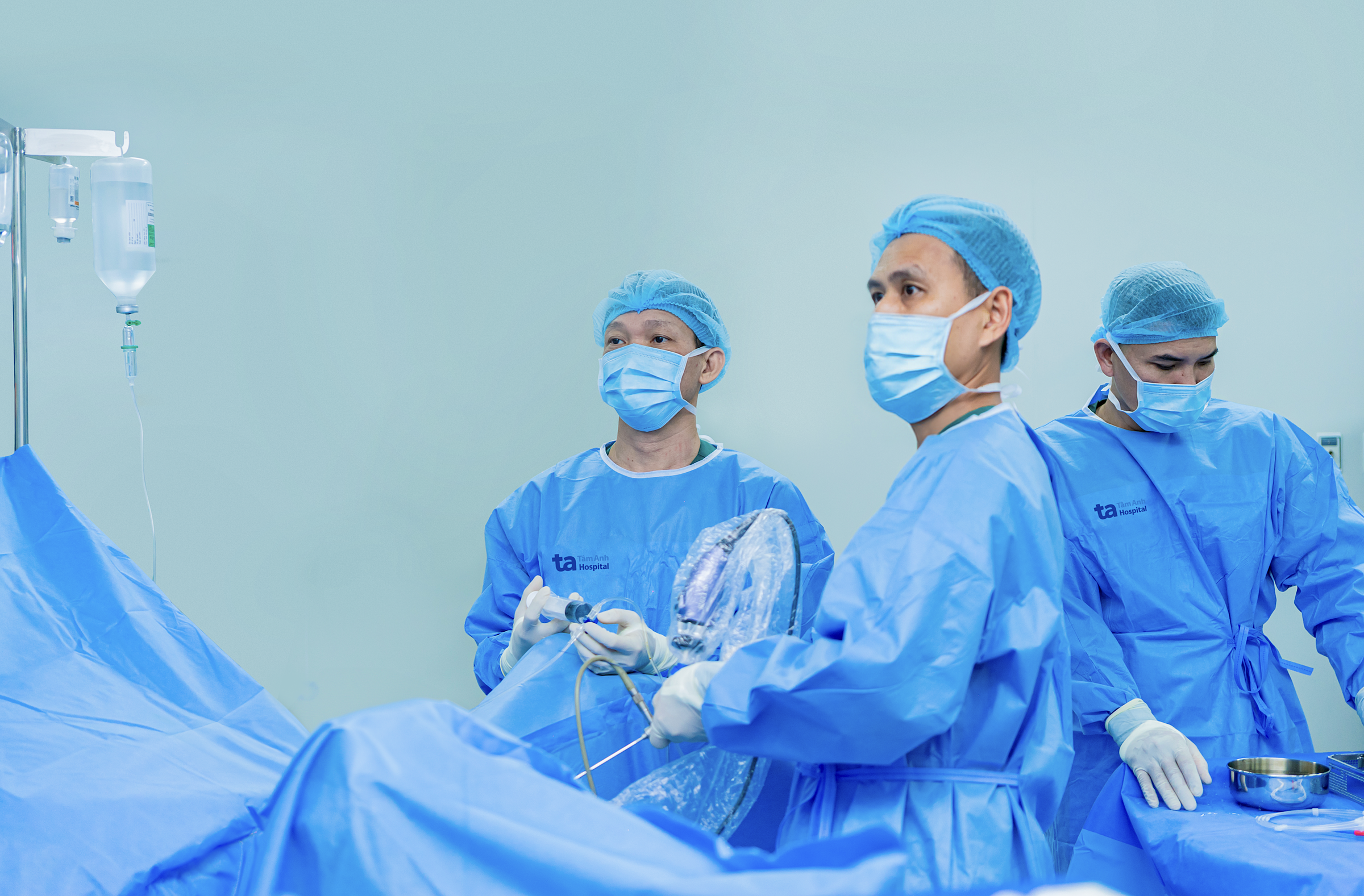Noah, an Australian man, experienced back pain radiating to his lower abdomen and pelvic area for two weeks, accompanied by painful urination with traces of blood. Doctor Nguyen Tan Cuong, Deputy Head of the Urology Department at the Urology - Nephrology - Andrology Center of Tam Anh General Hospital in TP HCM, discovered a 10 mm stone lodged in Noah's ureter, causing urinary obstruction. Several smaller stones were also present, leading to hydronephrosis and infection.
Noah had previously undergone ureteroscopy for kidney stones, and scar tissue had caused a narrowing at the ureteropelvic junction. Doctors placed a JJ stent to address the urinary obstruction. After two weeks, his ureter had dilated sufficiently, and the infection cleared. Doctor Cuong and his team then performed a retrograde flexible ureteroscopy. The largest stone, measuring 10 mm in diameter, was broken into smaller fragments and extracted. Tiny residual fragments would pass naturally through his urine.
24 hours after the procedure, Noah could eat, drink, and walk normally. He was discharged with a follow-up appointment to remove the JJ stent and for an annual stone check-up.
 |
Doctor Cuong (left) performs a retrograde flexible ureteroscopy on Noah. Photo: Tam Anh General Hospital |
Doctor Cuong (left) performs a retrograde flexible ureteroscopy on Noah. Photo: Tam Anh General Hospital
Ureteral stones can obstruct urine flow from the kidneys to the bladder, causing hydronephrosis and potentially serious complications like infection and kidney failure.
Ureteral stones typically originate from kidney stones that have migrated. Stones smaller than 5 mm can pass naturally through urine. For stones under 10 mm, patients are monitored for 4-6 weeks. If the stones don't pass naturally, medical treatment may be necessary. Larger stones that cannot pass on their own and cause dangerous complications require intervention through extracorporeal shock wave lithotripsy, retrograde ureteroscopy, or open surgery.
To prevent ureteral stones, it's crucial to drink enough water daily to increase urine output, reduce stone formation, and flush out small stones. Maintain a healthy diet by reducing salt intake, increasing consumption of vegetables and fruits, and limiting processed foods, fatty foods, alcohol, and stimulants. Regular exercise and maintaining a healthy weight are also important. Regular health check-ups can help detect kidney problems early.
Ha Thanh
*The patient's name has been changed.












